It’s February, and you know what that means! Even in unusual times, the weeks leading up to Valentine’s Day are filled with the theme of romance, including no shortage of romantic comedy releases and marathons. Whether you watch on your own or with the one(s) you love, these films have the power to warm a romantic’s heart when the real world proves a little harsher.
Traditionally, rom-coms feature that all-too-familiar set-up where two people with impossibly ideal lives meet-cute and fall for each other, usually with the occasional obstacle to overcome. Sure, those types of movies are still made and enjoyed, but to say the genre hasn’t evolved would be incorrect. Over the years, filmmakers have recast the mould to better reflect the way we live today.
But how do you keep a formula fresh without losing its magic?
Let’s Talk About Sex
It’s one of the final taboos of the big screen: stories and portrayals of sex. Meg Ryan caused a scandal in the early 1990s by simulating a fake orgasm in a diner in When Harry Met Sally. The comedic scene seems positively tame by today’s standards, as both studios and audiences have become more open about the physical side of relationships.
Though more ‘teen movie’ than ‘rom-com’, 1999’s American Pie made headlines by satirising teen misconceptions of sex, helping us laugh at the misadventures of youth. As time went on, a more open attitude toward bedroom activities was depicted in films like Friends with Benefits and No Strings Attached, two 2011 films that were both about people who agreed to sleep together with no emotional attachment. Knocked Up (2007) and Obvious Child (2014) explored the complications that can arise from those no-strings encounters, while Trainwreck (2015) showed Amy Schumer navigating the often-awkward (and hilarious) sexual experiences of modern single life.
Rather than judge, however, at their best these films dismantle the stigma of enjoying sex, particularly for female characters. Sex and the City, for its part, may not have aged terribly well in some respects, but both the TV show and the subsequent films have helped to normalise depictions of female sexuality – arguably paving the way for films like 2010’s Easy A, in which Emma Stone challenges perceptions of promiscuity as a high school girl who rallies against the labels thrust upon her when salacious rumours start swirling.
Films often provide some of our earliest lessons in life – particularly in terms of romance and relationships – and the evolution of rom-coms to embrace a more open (if humorous) discussion on sex can influence the larger culture in a palpable way.
The Female Perspective
Female sexuality isn’t the only topic to be explored as the romantic comedy moves forward. Female characters in general have become more complex and layered. Far from simply waiting for someone to sweep them off their feet, the heroines of modern film are active in shaping their own stories in many aspects, including romance.
1995’s Clueless was lauded for protagonist Cher (Alicia Silverstone), a character more concerned with self-improvement than relationships; and while she had romantic attachments, they were far from all she was as a person. Equally, Julia Stiles’ lead in 10 Things I Hate About You (1999) eschews any boy-crazy teen stereotypes in favour of a passionate, spirited performance that resonates with fans to this day.
In the last 10 years, we’ve seen films – such as 2011’s Bridesmaids – examine the pressure many women feel surrounding the subjects of marriage, friendship and their professional lives. Recent hits like Crazy Rich Asians (2018) look at cultural differences as well as the power imbalances in relationships where one partner is from a more privileged background. Amy Schumer’s I Feel Pretty (2018) tackled the issue of body confidence as it relates to many areas, including love. This kind of nuance goes beyond the typical ‘boy-meets-girl’ formula, and shows why and how romantic entanglement can impact our lives so heavily. While more of a drama than a comedy, 2019’s excellent The Sun Is Also a Star looks at love from the perspective of a young student (Yara Shahidi) who meets her perfect partner on the very day she is trying to save her family from deportation.
Life and love are complicated, and so are people. As the rom-com has matured, so have its portrayals of women and the female experience.
Dating In The Digital Age
We’ve all read those articles arguing that certain plots from films of the past would make no sense in today’s world. Romantic comedies are no exception, with mobile technology in particular rendering a lot of traditional dating tropes obsolete. Filmmakers have attempted to keep up with these innovations, which can be seen to speed up around the turn of the millennium. Tom Hanks and Meg Ryan, for example, played business rivals who fall for each other via email and dial-up internet chat rooms in You’ve Got Mail (1998), a comedy that embraced this ‘new’ technology as the world increasingly shifted to online.
The more our lives moved online, the quicker some rom-coms began to feel dated. Despite only being released in 2004, Little Black Book feels like it’s from another age, as the story revolves around lead Brittany Murphy going through the address book on her boyfriend’s Palm Pilot (for younger readers, this was a kind of personal organiser that was popular before the age of the smartphone).
As time went on, the internet was still an essential part of most stories but less central to the plot. Bridget Jones’s Baby (2016) saw Renee Zellweger ditch a paper diary for an iPad, and films like The Holiday (2006) and Must Love Dogs (2005) depict how some websites are incorporated into our romantic life.
While Spike Jonze’s 2013 film Her is far from bright and breezy, it is a romantic comedy of sorts, theorising what the relentless march of innovation might do to our relationships in the future. This is seen through the eyes of Joaquin Phoenix’s Theodore, who falls for the disembodied voice of his digital personal assistant (Scarlett Johansson).
Hearts Full Of Pride
One recent evolution in the genre has been the presence of more LGBTQ-focused rom-coms in mainstream cinema. Historically, a gay character would appear as little more than support for the straight lead, with scant character development and few motivations of their own. Telling love stories from a Queer character’s perspective was generally the purview of independent films and TV until 2018’s Love, Simon, which broke barriers as the first movie by a major Hollywood studio to focus on a gay high school romance.
What that rather complicated title means is that, for years, LGBTQ+ teens rarely if ever saw themselves on the big screen, and never as the centre of the action. While Love, Simon is a fairly familiar tale of the complications of teenage love, what made it so impactful is that we see these traditional stories told with a different voice. Over the 2020 holidays, Happiest Season drew attention as of the first Christmas movies to focus on a same-sex romance. Director Clea DuVall drew on her own experiences to tell the story of a woman struggling to come out to her conservative family during the festive season. It’s still a small sample group compared to the multitude of straight rom-coms, but it marks the impact audiences are making by demanding more diversity in media. Where once LGBTQ+ storylines were viewed as ‘controversial’ by studio bosses, small steps are being made to portray love from all perspectives.
Of course, there’s nothing wrong with two characters leaving their high-powered jobs, bumping into each other on the subway and entering into a dream romance that leads to a Happily Ever After. It’s just that film is an endlessly malleable medium, and in adapting and changing the way these romances unfold, the romantic comedy genre has been able to offer the universal language of love to a greater number of people.




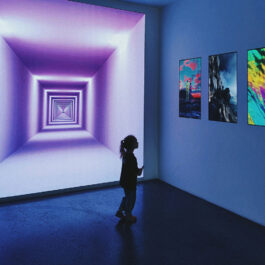

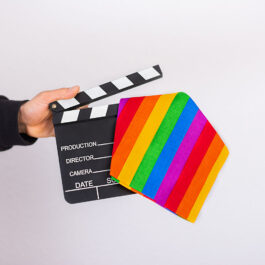
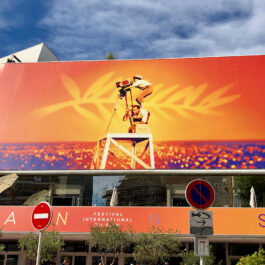

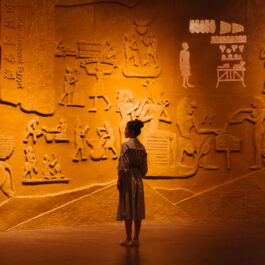



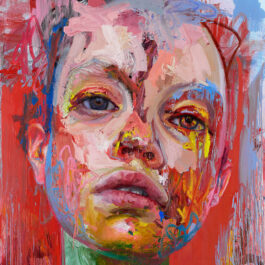
Sorry, the comment form is closed at this time.